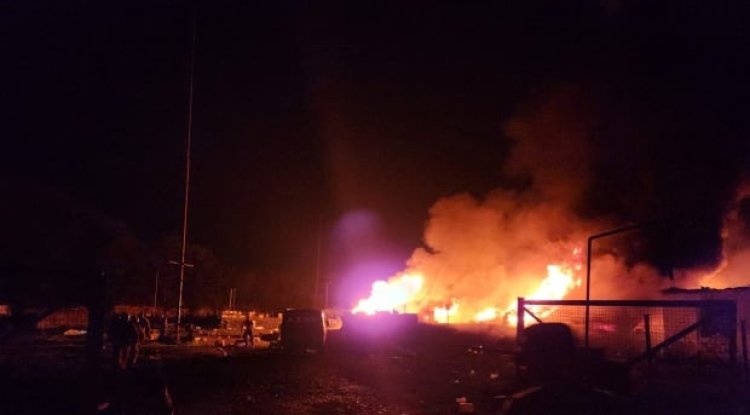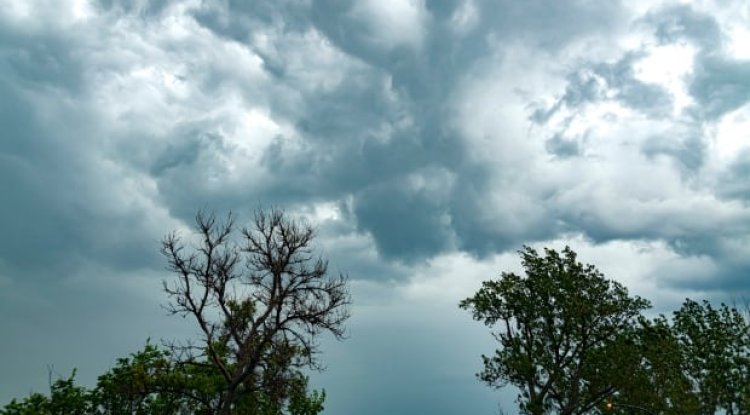Hollywood North hit by U.S. strikes — and its own labour talks are right around the corner
Producer Amber Ripley, fourth from left, discusses production of her film The Bearded Girl, which is currently the only movie shooting in British Columbia, as strikes by U.S. actors and writers are impacting movie and TV productions filming in Canada. (Darko Sikman)It's an interesting time to be shooting a movie in Canada, says the producer of the only feature film currently listed as in production in British Columbia."I'm grateful that we are able to shoot and that we are able to employ crews right now, because it's a hard time for everyone," said Amber Ripley, who's producing The Bearded Girl, a film that tells the story of a young woman who doesn't want to follow in the footsteps of her mother, a bearded lady in a circus.U.S. writers and actors are striking over issues like residuals in the streaming ecosystem and the use of artificial intelligence. This means foreign film and TV shoots in Canada have ground to a halt. While domestic production continues, union leaders say that ev


It's an interesting time to be shooting a movie in Canada, says the producer of the only feature film currently listed as in production in British Columbia.
"I'm grateful that we are able to shoot and that we are able to employ crews right now, because it's a hard time for everyone," said Amber Ripley, who's producing The Bearded Girl, a film that tells the story of a young woman who doesn't want to follow in the footsteps of her mother, a bearded lady in a circus.
U.S. writers and actors are striking over issues like residuals in the streaming ecosystem and the use of artificial intelligence. This means foreign film and TV shoots in Canada have ground to a halt. While domestic production continues, union leaders say that eventually many of the concerns driving the U.S. strikes will need to be negotiated here as well, albeit in the context of the Canadian system.
In Canada, writers are represented by the Writers Guild of Canada (WGC), while English-language actors are represented by the Alliance of Canadian Cinema, Television and Radio Artists (ACTRA). Both unions have agreements with the Canadian Media Producers Association (CMPA) that outline the rules for films made by Canadian producers.
The WGC's agreement runs through the end of this year, while ACTRA's expires at the end of 2024.
Service work slows down
In many regions of the country, the majority of film production is foreign service work, a term used to describe U.S. productions filming in Canadian locations.
But that work has dried up this summer due to the strikes south of the border, leaving many out of work.

According to figures from ACTRA branches in Ontario, Manitoba and the Maritimes, 50 to 55 per cent of typical film and television productions in those regions are foreign service work.
The B.C. chapter of the union says production in the province is primarily foreign service work, noting that there are currently four shoots in progress (The Bearded Girl and three TV series) and 12 productions in the pre-production planning stage. Last year at this time, it said there were more than 50 productions either shooting or in pre-production.
"We definitely feel it," said Eleanor Noble, national president of ACTRA. "Less auditions, less work, less opportunities, less time on set."
Noble says ACTRA is supportive of both the WGA and SAG-AFTRA, the U.S. unions for writers and actors.
"We stand in solidarity with them 100 per cent. Their issues are our issues, we have the same fight."

Similar issues, different systems
Alex Levine, president of the WGC and a working screenwriter, says writers in Canada face challenges similar to the ones their U.S. counterparts have.
"Fewer writers, shorter contracts, lower pay, and then not enough on-the-job experience," he said. "Those are some of the same issues that we're dealing with, and of course, artificial intelligence."
He says the WGC will be looking to negotiate a Canadian solution to those problems in the fall.
A fundamental difference between the Canadian and U.S. systems is that in Canada, film and television projects are driven by producers, not studios.
"[Producers] drive the bus in regards to specific television and film productions," Levine said. "The producers are the ones that get a broadcaster invested in a project and once they say 'Yes, we want to develop this,' that triggers money from Canadian governmental organizations."

Health of domestic screen industry
Levine says the health of the domestic Canadian screen industry depends on how much money is available to producers in the first place, referencing government efforts to regulate foreign streamers.
And while Canadian actors can still work on domestic film and TV productions, they are in the midst of a separate dispute with a number of Canadian advertisers that's been ongoing for more than a year.
Depending on how long the situation in Hollywood persists, Levine says it's also possible that U.S. networks could look to purchase Canadian shows, something that happened during the 2008 writers strike with shows like Flashpoint.
"Certainly there are a lot of Canadian producers now who have projects at various stages of development, or already shot and in the can."
The indie experience
Ripley, the producer behind The Bearded Girl, says that normally, it can be a challenge to crew a Canadian indie feature because they have fewer dollars to spend.
"It's a little tough sometimes to compete with the bigger service productions in terms of getting world class crew," she said. "But we've just had so many options, and just amazing crew coming out to support and be a part of this one."

She says indie filmmaking is a different experience compared with the service productions she's worked on in the past.
"We have a lot of creative freedom. We don't have a network or a studio approving everything and getting involved with the day to day," Ripley said.
"It really is just us and our vision, and people get to be much more collaborative on these smaller indie films."
What's Your Reaction?


















